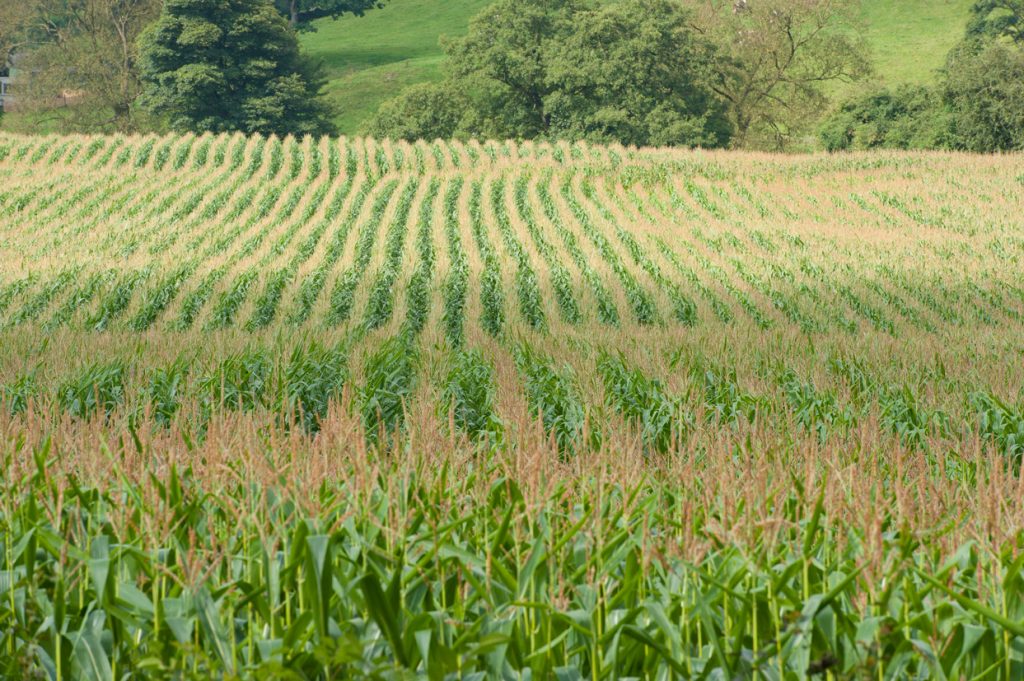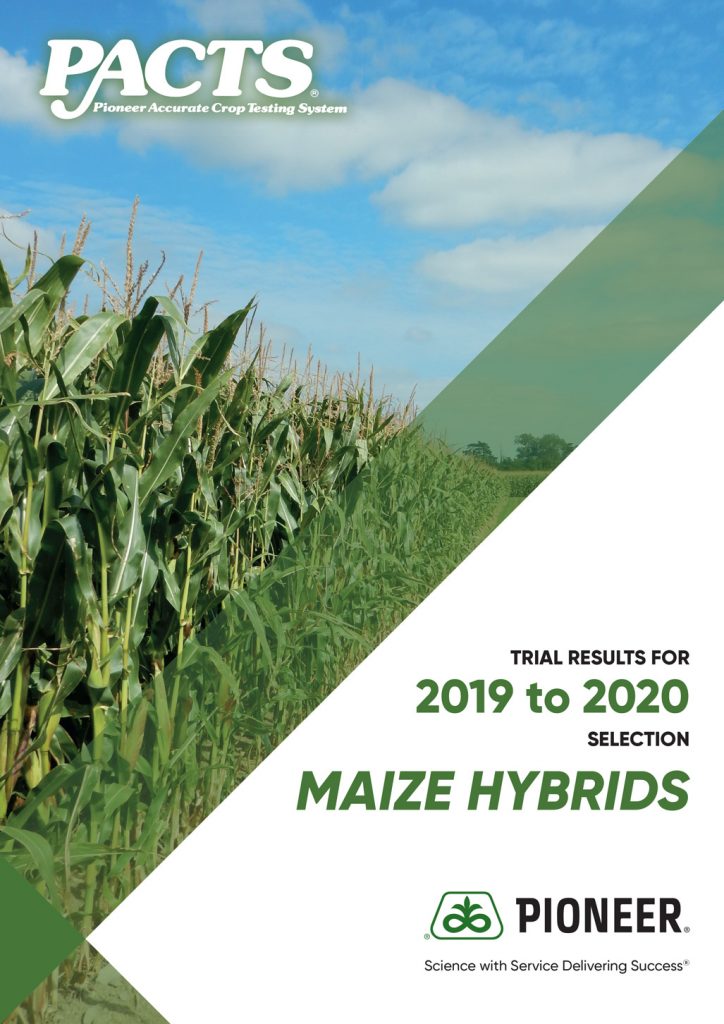New maize booklet reviews trials results from autumn 2018
7th March 2019
The 2019-2020 Pioneer hybrid maize booklet has been published by Corteva Agriscience.

The 2019-2020 Pioneer hybrid maize booklet, which showcases the agronomic and nutritional results from trials carried out on 21 farms across the UK last year, has been published by Corteva Agriscience.

“When farmers choose to sow a Pioneer maize tested in the PACTS trials, they know farmers with similar challenges to them have helped evaluate their performance,” says Andy Stainthorpe, sales manager for Pioneer.
Fresh information
“The data is also fresh from crops harvested last autumn. This is a whole year ahead of most other variety performance data published and makes the comparisons more helpful.”
Each trial is established within a commercial crop of maize, planted and harvested by the host farmer, with help from Pioneer staff. All are managed as part of the field, so the results reflect the effect of local weather and commercial crop management practices. Each site is classified as ‘Favourable’ or ‘Less Favourable’, depending on the heat accumulation typically measured at the location.
Representative samples from every PACTS plot are taken at harvest and dried and tested for elements such as dry matter, starch yield, sugar yield and whole plant digestibility.
First dent hybrid for UK
After PACTS trials in 2017 and 2018, Pioneer has now identified variety P7034 as the first of its hybrids with ‘dent’ grain texture suitable for growing by UK farmers.
“The highest starch yielding maize hybrids in the world are ‘dent’ types rather than the ‘flint’ types traditionally grown in the UK’s maritime climate,” says Mr. Stainthorpe.
“Additionally in dent kernels, the starch granules are not encased in as much protein as starch granules in flint kernels and rumen bacteria can access the starch more easily.
“The trial results confirmed that dent hybrid P7034 is fully adapted to growing in the UK, whilst producing more than 81% relative ruminal starch degradability. This is around 20% greater than the four best selling competitor varieties tested at the same time. (Table 1)
“Last year we sold out of P7034 and there is a lot of interest in it this season too.”
|
Favourable Sites |
||||
|
Maize variety |
No of sites |
Starch |
Relative Ruminal Starch Degradability |
Whole Plant Digestibility |
|
P7034 |
4 |
36.2% |
81.1% |
73.1% |
|
Competitor maize |
4 |
33.3% |
63.1% |
69.7% |
|
Competitor maize |
4 |
33.6% |
62.9% |
70.5% |
|
Competitor maize |
4 |
35.0% |
62.7% |
70.6% |
|
Competitor maize |
4 |
34.5% |
61.7% |
71.4% |
|
Less Favourable Sites |
||||
|
Maize variety |
No of sites |
Starch |
Relative Ruminal Starch Degradability |
Whole Plant Digestibility |
|
P7034 |
8 |
32.3% |
81.5% |
71.6% |
|
Competitor maize |
7 |
33.5% |
64.1% |
72.2% |
|
Competitor maize |
8 |
29.2% |
56.1% |
69.7% |
|
Competitor maize |
8 |
33.7% |
63.2% |
71.1% |
|
Competitor maize |
8 |
32.5% |
63.2% |
71.9% |
Table 1: Nutritional profile of P7034 against four competitor maize varieties
